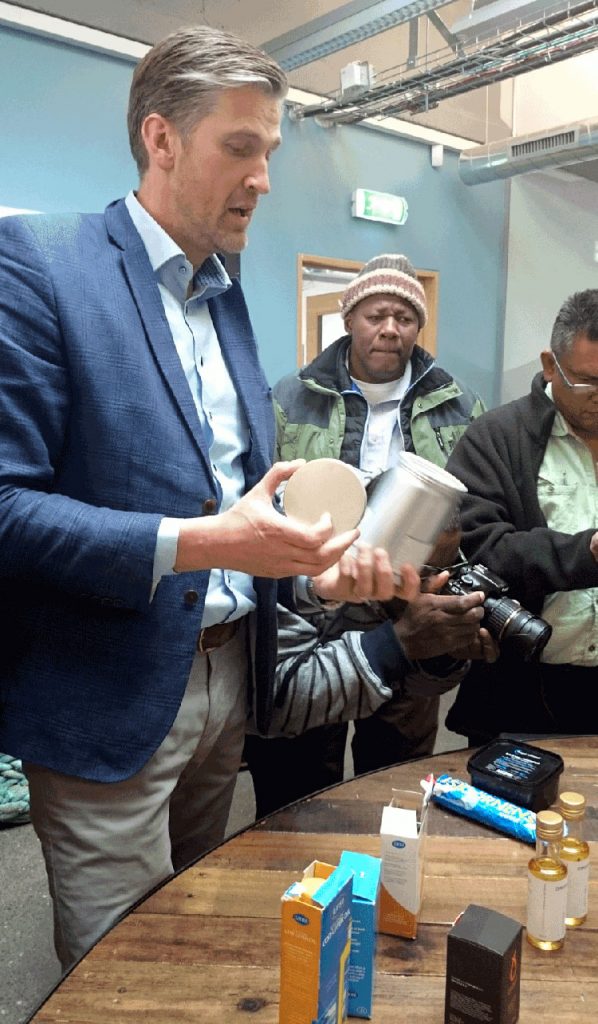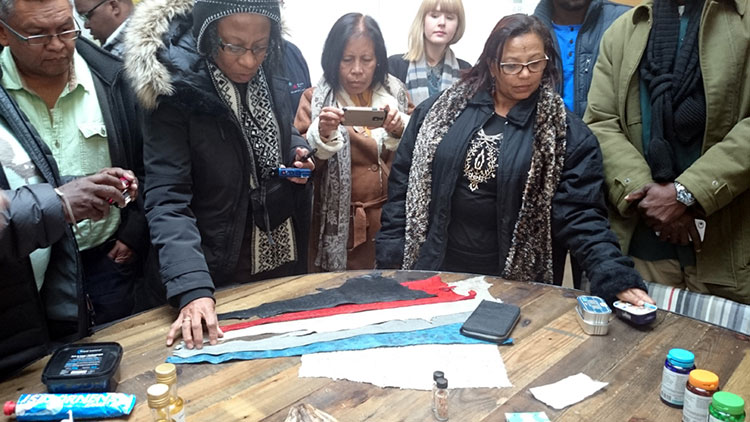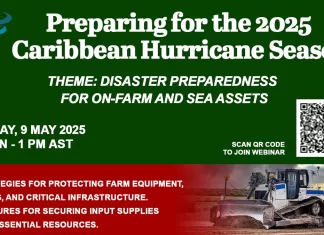
Building the Caribbean’s muscle to ensure safe seafood and to protect and grow US$400 million in fisheries exports
The Sanitary and Phytosanitary (SPS) Measures Project is supported by the 10th European Development Fund (EDF) under the programme entitled “Support to the Caribbean Forum of the ACP States in the Implementation of the Commitments Undertaken under the Economic Partnership Agreement (EPA): Sanitary and Phytosanitary (SPS) Measures”. The Inter-American Institute for Cooperation on Agriculture (IICA) is executing the project in collaboration with the CRFM.

Belize City, Monday, 2 May 2016 (CRFM)—Caribbean countries have a living bank of marine resources from which they collectively cash out hundreds of millions of dollars a year to support emerging national economies by providing good jobs, food and foreign exchange, among other benefits. However, in order to remain active and competitive in the global marketplace, countries have had to find ways to surmount the challenges posed by stringent international standards called sanitary and phytosanitary (SPS) measures, for food safety and for protection against diseases carried animals and plants.
Under an EU-funded SPS Measures Project, the ability of Caribbean countries to effectively address those challenges is being strengthened through initiatives such as specialized training for those gatekeepers who help to ensure the safety of both imported and exported foods.
The project has reached a new milestone, as a group of professionals from CARIFORUM States—the countries which make up the Caribbean Community, as well as the Dominican Republic—has just concluded The Sanitary and Phytosanitary Management Course. The intensive two-week training, held at the United Nations University – Fisheries Training Programme (UNU-FTP) in Reykjavik, Iceland, was organized under the capacity building component of the project.
“I am very pleased that the 18 senior officials from our Member States were able to participate in this important training opportunity to strengthen public sector capacities to effectively manage sanitary and phytosanitary systems for fish and seafood,” said Milton Haughton, Executive Director of the Caribbean Regional Fisheries Mechanism (CRFM), the agency coordinating the fisheries sub-component of the project.
CARIFORUM States are Antigua and Barbuda, Bahamas, Barbados, Belize, Dominica, Dominican Republic, Grenada, Guyana, Haiti, Jamaica, St Lucia, St Vincent and the Grenadines, St Kitts and Nevis, Suriname, Trinidad and Tobago.
The Caribbean is looking at the Icelandic example to not just bolster its SPS regime, but also to expand the range of value added products from fish, and strengthen the value chain to maximize benefits across the spectrum, from fisher to processor to exporter. All along that chain, adherence to new SPS measures—which are taking shape with plans to establish harmonized legislation across CARIFORUM States—will be vital in helping to secure the region’s position on the global market.
There is a lot at stake. CARIFORUM countries exported nearly US$400 million worth of seafood and other marine products around the globe in 2015, with their biggest trading partners being the US and the EU, respectively.
Official trade data from those jurisdictions indicate that CARIFORUM States exported in excess of US$210 million worth of finfish, lobster and conch, as well as value added products such as fish sauces, to the USA in 2015. Additionally, they exported roughly US$75 million worth of marine products to the EU, the region’s second largest seafood trading partner, during the same time.





